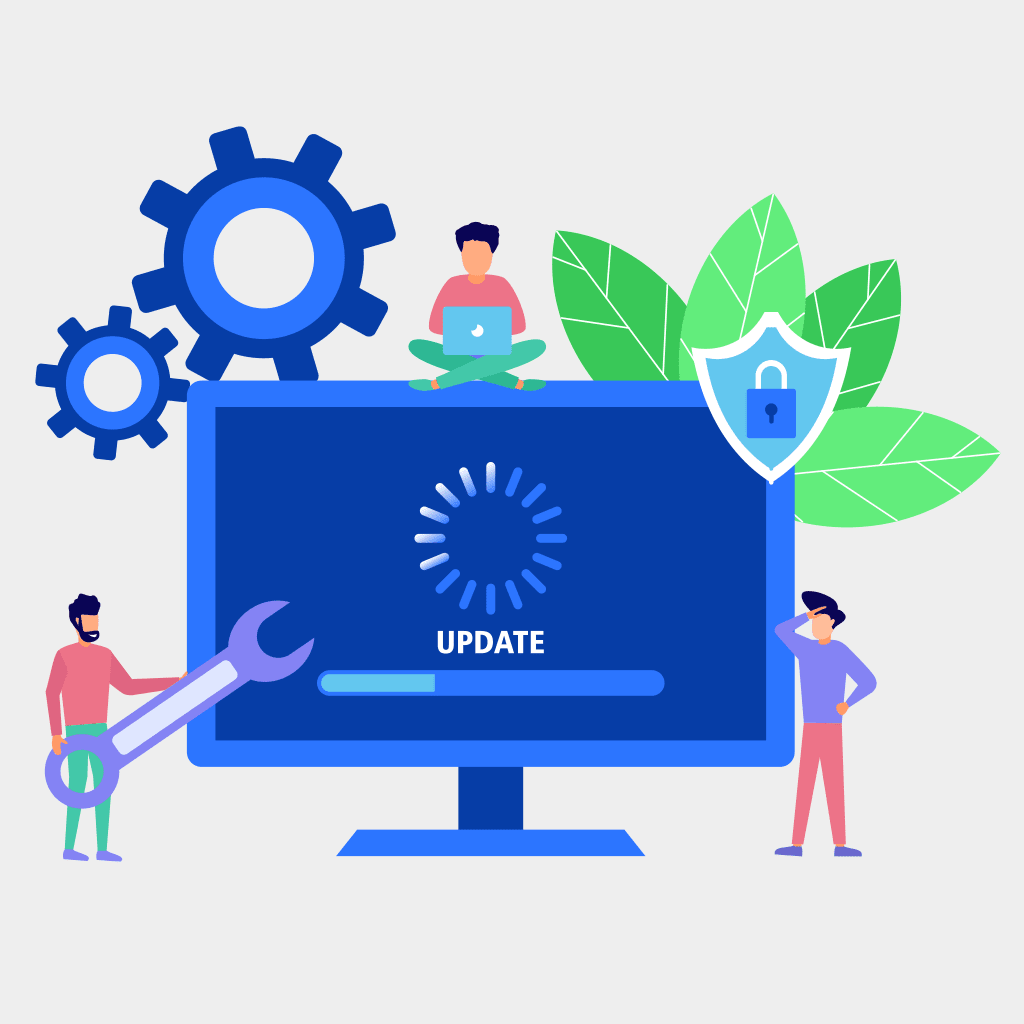Choosing a website support and maintenance partner can be a difficult task, as it’s important to find a company that can meet your specific needs and provide the level of service that you require.
Here are a few things to consider when choosing a website support and maintenance partner:
- Experience and Expertise: Look for a company that has experience working with websites similar to yours and has a track record of delivering high-quality work. Check their portfolio, testimonials, and case studies to get an idea of their expertise and the kind of work they have done.
- Communication and Responsiveness: Make sure that the company you choose has a good communication system in place, and that they are responsive to your inquiries and requests. Find out how they communicate with clients, what channels are available and how quickly they respond to customer service tickets or inquiries.
- Scalability: Website support and maintenance needs can vary depending on the size and complexity of your website, so make sure that the company you choose can provide scalable support to meet your needs. Whether you are a small business or a large enterprise, it’s important to find a partner that can handle your specific requirements.
- Proactive approach: A good website support and maintenance partner should have a proactive approach, looking out for and addressing potential issues before they happen. They should continuously monitor your site and take necessary action to prevent any issues and keep your site running smoothly
- Security: Website security is crucial, and you need to ensure that your partner is taking the necessary steps to keep your site secure from cyber threats and hacking attempts. Make sure that they have a plan in place to keep your website secure, and that they are keeping your website and any personal data stored on it safe.
- Reporting and Analytics: Make sure that your website support and maintenance partner will provide you with regular reports on the health and performance of your website. Reports and analytics will give you an insight into the traffic, users’ behavior and performance of your site and allow you to make data-driven decisions.
- Cost: Cost is always an important factor, but don’t make it your only deciding factor. Compare costs and services from different providers and make sure that you are getting the best value for your money.
- Check for additional services: Some website support and maintenance partners offer additional services such as SEO, PPC, content creation and CRO. Look for a company that offers a comprehensive range of services that can help you to improve the performance of your website and achieve your business goals.
- Technical Support: The technical support offered by the company is a vital aspect of website maintenance. It’s important to have a team available to handle any technical issues that may arise, such as server problems or software bugs. Find out what kind of technical support they offer and the hours of availability.
- Backups and disaster recovery: Disasters can happen anytime, so make sure that your website support and maintenance partner has a robust disaster recovery plan in place. Your provider should have a reliable backup system in place and be able to restore your website quickly in case of any accidents or disasters.
- Flexibility: The company should be flexible and able to adapt to your changing needs. This can be particularly important for businesses that are growing or evolving quickly. Make sure that the provider you choose is able to adapt to your changing needs and can accommodate any new features or functionality you might need in the future.
- Local or Remote: Consider whether you want a local or remote support and maintenance partner. Local providers can be more accessible for in-person meetings and conversations, but remote providers can offer cost savings and can provide support from different time zones which may be more convenient.
- Contractual Agreements: Review the terms of the contract with the provider, including the duration of the agreement, the scope of services, pricing, and exit clauses. A clear contract will help to ensure that both parties are on the same page and can help to prevent any misunderstandings or disagreements down the line.
- Check the provider’s reputation: Look at online reviews and testimonials, and ask for references. Contact the references and ask about their experiences with the provider. This can give you an idea of the provider’s reliability, expertise, and the quality of the services offered.
Ultimately, finding the right website support and maintenance partner requires careful consideration of your specific needs, goals, and budget. By keeping these factors in mind and doing your research, you can find a partner that will help you to keep your website running smoothly and achieve your business objectives.
In conclusion, choosing the right website support and maintenance partner is crucial for the success of your website and the growth of your business. By considering these factors and doing your research, you can find a partner that will help you to achieve your goals and keep your website running smoothly.
MI Group provides digital infrastructure management which includes website support and maintenance. Visit our RapidSupport website to learn more.


